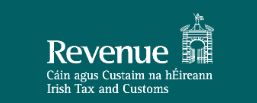
Revenue Complaince Checks or Audits - Steps to take

Revenue Intervention Summary
Lately, more businesses are getting random compliance check letters from Revenue. But what is a Revenue audit or compliance check, and how can you get ready for it?

Why Me?
There are three main reasons why you may have been chosen.
1. Random Audit: You might be selected as part of Revenue’s regular random audits.
2. Industry-Specific Focus: If your industry has a high rate of non-compliance, Revenue may target it.
3. Specific Information from Revenue: Revenue may have specific information prompting your selection, often through its Risk Evaluation Analysis and Profiling (REAP) system.

Honesty is the best policy
Maintain open communication with Revenue during the audit. Revenue officials might issue an audit notice, find no issues, or request clarification on a tax matter. Prompt and clear responses can often resolve issues quickly, avoiding further action.

How to prepare
Firstly - Don't panic.
Once notified, use the time to prepare thoroughly. If you find any tax discrepancies, make a voluntary disclosure and pay any due tax and interest promptly.
Compliance Checks tend to focus on a specific period e.g. Vat period.
Audits usually focus on one year, but Revenue can review records up to four years, or longer if fraud or neglect is suspected.

Conclusion
Though a Revenue audit can seem intimidating, thorough preparation and cooperation can simplify the process and ensure compliance. By keeping accurate records and engaging proactively with Revenue, businesses can handle audits confidently and with integrity.
If you don’t have the cash available to pay the settlement amount, you’ll need to enter into a phased instalment plan with Revenue.

Remember – Companies must keep financial records for six years to comply with legal requirements.

How Solve Outsource can help?
We have friendly and expert staff who can help companies understand and meet the challenges ahead.
Author..
John Carolan ACMA, CEO of Solve Outsource
Contact Email: john@solve.ie
